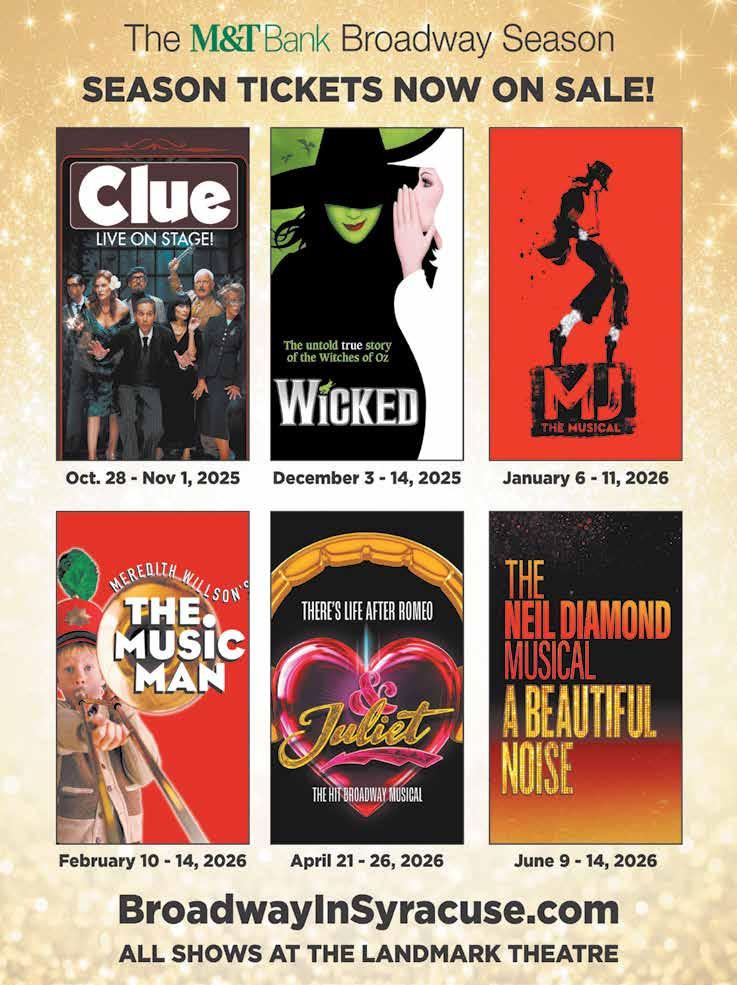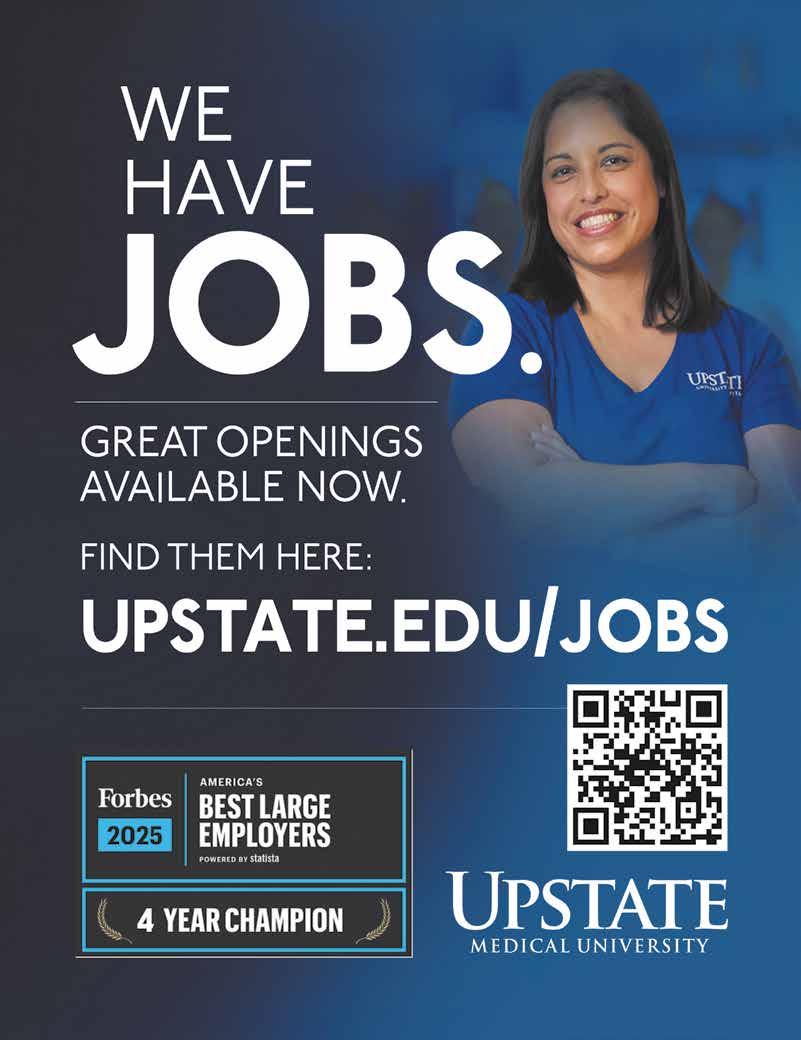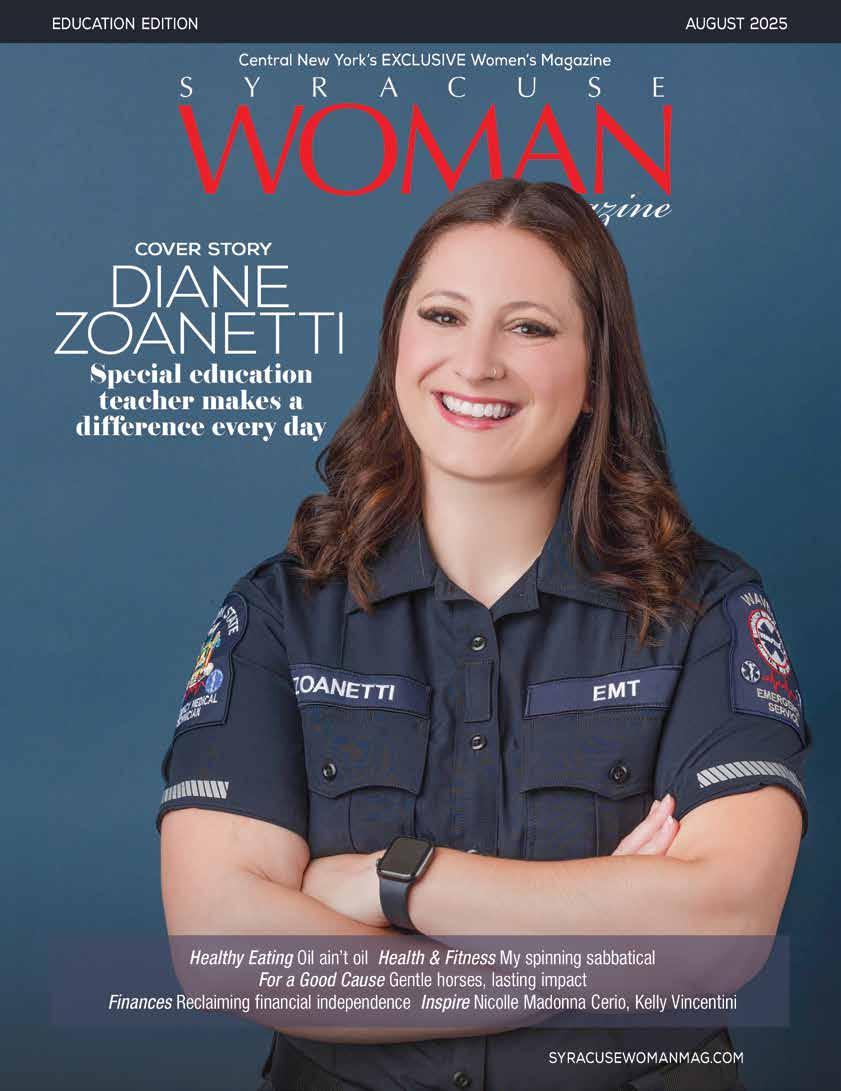



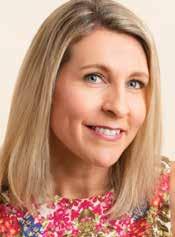
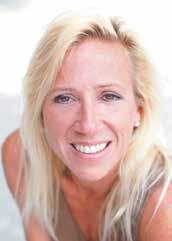

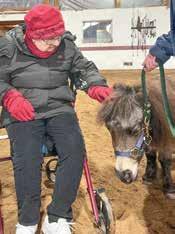

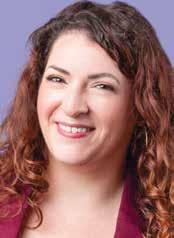
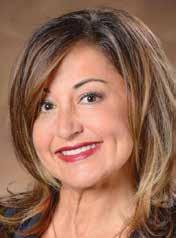

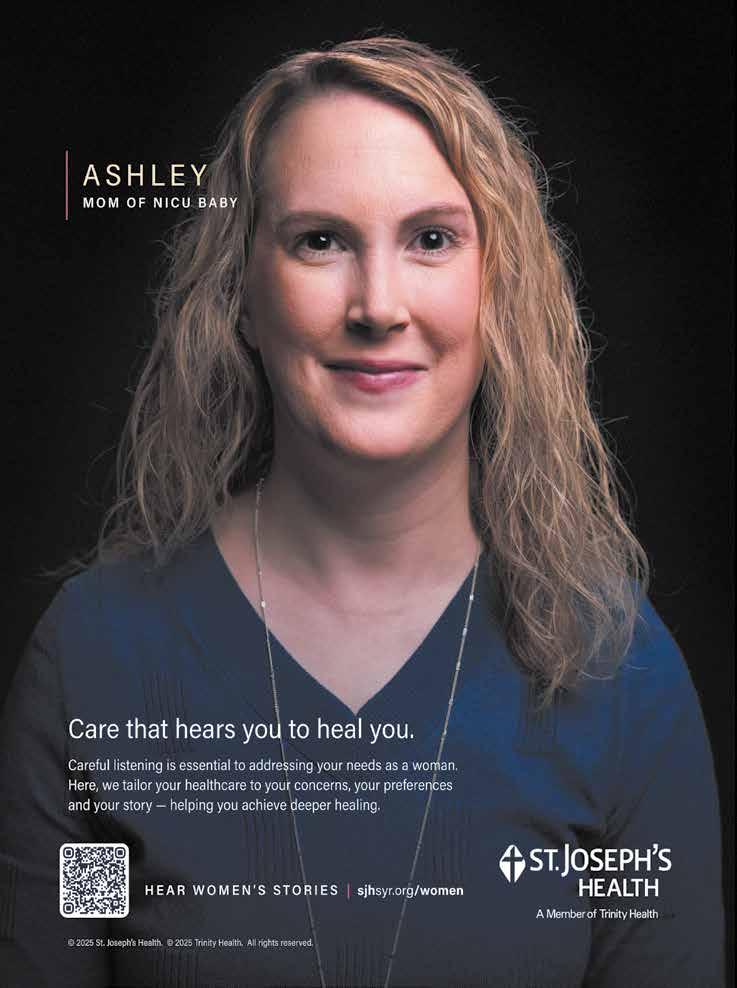
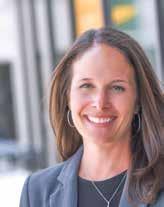















Bethany Creaser, Executive Director, Early Childhood Alliance Onondaga
When we think about the future — about strong communities, thriving economies, and inspired leadership — we often look to our schools, our recent graduates, and our young professionals. But if we’re serious about shaping a better future, we must begin earlier. Much earlier.
The truth is, the foundation for leadership — and lifelong learning — begins not in kindergarten or even preschool, but at birth.
From the moment a child is born, their brain begins developing at an astonishing pace. In the first few years of life, more than one million new neural connections form every second. These early experiences, whether at home, in childcare, or other early learning environments, shape the architecture of the brain and set the stage for everything that follows: school success, emotional well-being, healthy relationships, and even long-term health outcomes.
Central to this development is early relational health — the state of emotional well-being that grows from strong, nurturing relationships between infants and toddlers and their parents or caregivers. When these relationships are warm, responsive, and consistent, they help children feel safe, build trust, and thrive.
This is why high-quality early learning experiences are not just a luxury or a “nice to have.” They are essential. They support children’s development across all domains — language, socialemotional, cognitive, and physical. A safe, stable, and stimulating environment helps children build skills like problem-solving, emotional regulation, and early literacy — skills they’ll use not only in school, but in life.
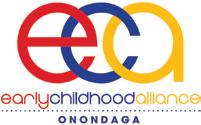
High-quality child care is a vital part of this equation. But in Onondaga County and across the country, too many families struggle to find and afford care that meets their needs. At the same time, child care providers, who are doing some of the most important work in our society, are often underpaid and undervalued. We must recognize that early educators are not babysitters; they are brain builders. And they deserve the training, compensation, and support to do this essential work well.
Early childhood is also the time when we can identify and address developmental delays, long before they impact a child’s ability to thrive in school. When we ensure regular developmental screenings and connect families to early intervention services, we change life outcomes. Delays that go undetected until kindergarten or later are often harder, and more expensive, to address. Early support matters.
At the Early Childhood Alliance Onondaga, we are working to build a coordinated, equitable system that supports children and families from the very beginning. Our mission is simple but powerful: to ensure that all children in Onondaga County are healthy, thriving, and ready to succeed in school and in life.
Continued on page 7
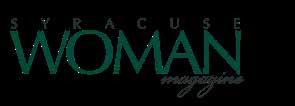
SyracuseWomanMag.com contact@ syracusewomanmag.com
PUBLISHER
David Tyler
dtyler@eaglenewsonline.com
DESIGN
Andrea Reeves
PHOTOGRAPHERS
Alice G. Patterson
Chef Eric Rose
CONTRIBUTORS
Bethany Creaser
Janelle Davis
Alyssa Dearborn
Mona Hamlin
Kate Hill
Lauren Kolb
Lorna Oppedisano
Chef Eric Rose
Jen Wing
Cover photo by Alice G. Patterson
Renée Moonan
315.657.7690
Rmoonan@ eaglenewsonline.com
Unlike any other publication in the Syracuse area, our feature articles address major topics that interest local women. Each issue includes articles on health, fashion, fitness, finance, home matters, dining, lifestyle and personal perspectives, as well as a spotlight on local Syracuse women. Ads are due on the 15th of the month prior to publication. The print magazines will be distributed locally in over 350 locations and will be in your inbox electronically by the middle of every month.
The publication is available free of charge.
315.434.8889 | 2501 James Street, Suite 100, Syracuse, NY 13206
The magazine is published 12 times a year by Community Media Group, LLC and Eagle Publications 2501 James St., Suite 100 Syracuse, NY 13206
Copyright © 2025 Sample Media Group, LLC. No part of this magazine may be reproduced or republished without the consent of the publishers. Syracuse Woman Magazine is not responsible for unsolicited submissions, manuscripts, photos or artwork. All such submissions become the property of Community Media Group, LLC and will not be returned.


To achieve that mission, we must support the people who care for children every day: parents, caregivers, and families. They are children’s first and most important teachers. But raising children takes more than love; it takes access to resources, services, and a community of support. Whether it’s home visiting programs, health care, mental health services, or access to nutritious food and safe housing, families deserve to be supported, not just expected to manage on their own.
This work is also about equity. Not all children start from the same place, and too many face barriers rooted in systemic injustice, poverty, and lack of access. By investing early, especially in historically under-resourced communities, we have the opportunity to close opportunity gaps before they widen.
The future leaders we celebrate in this issue — those who will shape our businesses, schools, and neighborhoods — are today’s babies and toddlers. Their success tomorrow depends on the opportunities we create today.
If we want to build a stronger, smarter, more compassionate future for Central New York, we must start at the beginning. Because preparing future leaders doesn’t start in high school or even in preschool. It starts at birth.
Bethany Creaser is the executive director of the Early Childhood Alliance Onondaga. To learn more about the Early Childhood Alliance Onondaga and how we're working to support children and families from the very beginning, visit us online at: ecaonondaga.org or on Facebook at facebook.com/ecaonondaga.
St. Joseph’s Health Foundation held its 31st Annual Gala Dinner Dance on Friday, May 30, 2025, at the Turning Stone Resort in Verona. With the theme, “Evening Amongst the Stars – Celebrating Central New York’s Best and Brightest”, the Foundation honored A. John Merola, MD, and the Auxiliary of St. Joseph’s Health with Lifetime Achievement Awards for the significant impact they have had on St. Joseph’s Health
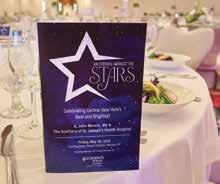
and the entire Central New York Community. The gala featured a cocktail hour at the Turquoise Tiger Lounge, silent auction with oncein-a-lifetime bucket-list trips and other high-end items, dinner and dancing to live music by the Grand Central Station Band. CNY Infusion Services, LLC, was the presenting sponsor for the 20th year. Since its inception, the Gala has netted over $6.4 million.
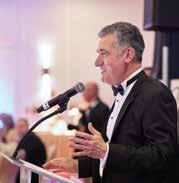
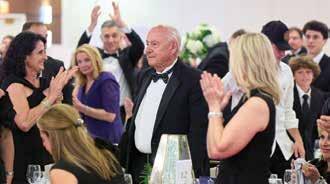

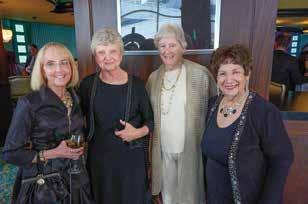
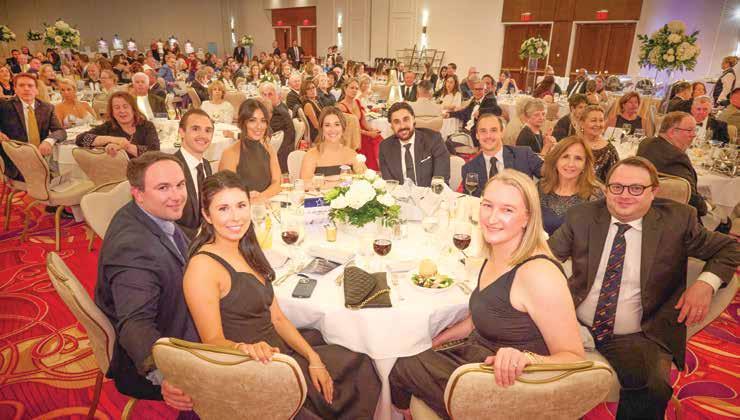

DEMENTIA CARE GETS A BOOST AT SUNSHINE HORSES

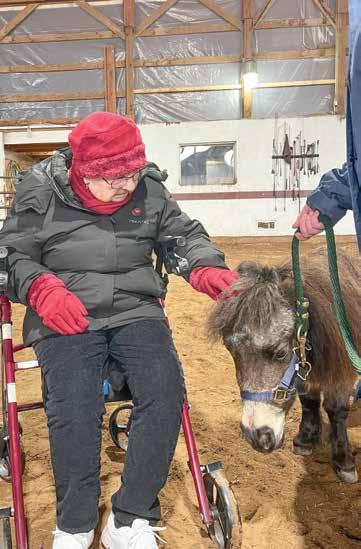
Sunshine Horses has some positive news for Central New Yorkers dealing with Alzheimer’s disease or related dementia and their caregivers.
The organization is offering a unique program that allows individuals with memory loss and their caregivers, to interact with horses in a safe and energizing environment.
The program is called the Memory Care Corral, and allows participants with no horse handling experience to interact with horses in therapeutic non-riding activities including performing grooming, creating artwork, walking with horses, learning fascinating things about the horses, and doing gentle chair-based exercises.
Participants benefit from reduced stress, depression and isolation, and research has shown that human horse connections can help participants feel more relaxed, confident, and happy.
“The motto of Sunshine Horses is ‘helping horses helping people’ and the Memory Care Corral program fits perfectly into that vision,” said Lisa Trumble, a volunteer at Sunshine Horses. “It is moving and heartwarming to see how people with dementia and their caregivers find comfort and joy in spending time with our gentle horses. I feel honored and privileged to be able to help facilitate that process.”
Volunteers have been trained by the Alzheimer’s Association of Central New York, and start-up funding has been provided by the Athelda Fund, a family fund dedicated to enabling individuals living with dementia to remain at home and engaged in their community for as long as they can.
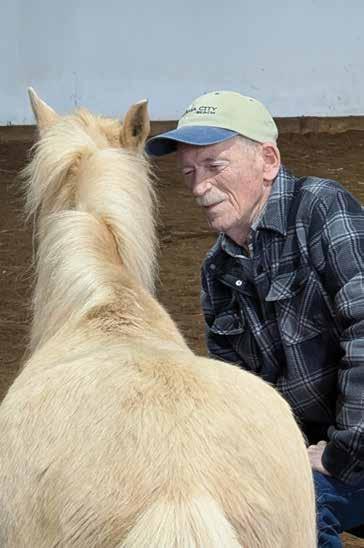
“I know from my own personal experience, as a former caregiver for my mother who had Alzheimer’s disease, how stressful supporting someone with memory loss can be, and this is especially true for those who are caring for their loved ones at home,” said Sandra H. Martin who manages the Athelda Fund.
According to Martin, the Memory Care Corral program developed in partnership with community organizations with expertise in eldercare and dementia, as well as therapeutic horsemanship professionals, is an innovative program based on research, that has shown that interaction with horses is beneficial for both the individual with memory loss and the caregiver.
“I have found this program to be a perfect tribute to my mother, whose charitable fund, the Athelda Fund, provides the resources to make this program possible,” said Martin.
Sessions are held 1 p.m.- 2:30 p.m. on select Saturdays at Sunshine Horses which is located at 3721 Verplank Road in Clay. Preregistration is required by calling 315-456-9380 and leaving a message or emailing sunshinehorsesinc@gmail.com. Sessions are $10 per person ($20 per session for two participants).
More information can also be found by visiting SunshineHorses.org. Sunshine Horses, Inc. is a non-profit, independent adoption agency and rescue facility for horses in need. Founded in 2003, Sunshine has found loving homes for more than 220 horses. SWM
Mona Hamlin is a volunteer at Sunshine Horses in Clay.
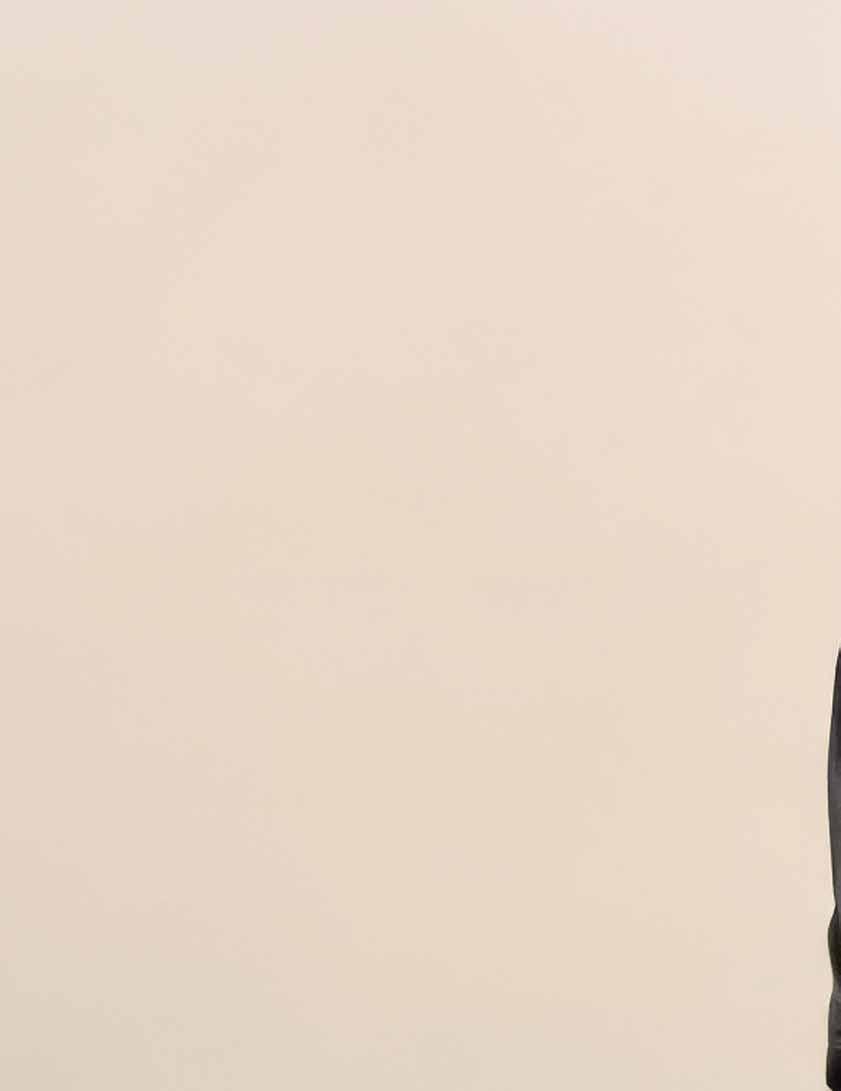
Alyssa Dearborn
When Lindsay Mastrogiovanni founded Conscious HR, she had the idea of doing human resources the “Lindsay way.”
A published author and a non-practicing medium, Lindsay realized that she wanted to better unite her interests in business and human connection while she was working in a corporate human resources position. As she climbed the ladder of working in HR, she realized the connections between the needs of a business and the needs of the people working at a business.
“I have this entire spiritual side of everything I am and I do,” Lindsay said about her business’s origins. “And when I was still in corporate, I knew I needed to go start making more of an impact the ‘Lindsay way.’ I knew there was a way to combine my spiritual side of things with my business side of things … so everything that is Conscious HR is Lindsay. It is very based in intuition and consciousness.
“And the conscious piece, to me, is working through intentions,” she added. “When we start to work with a client, we start with goals. There’s so much of this conscious leadership concept that’s built into, ultimately, what we deliver. So everything we do now starts with that level of intention, and individual personalities and recognizing that humans are humans regardless of the title they have.”
This uniting of Lindsay’s personal and professional sides resulted in a company that aims to expand beyond the traditional perception of human resources. At Conscious HR, this includes both the usual legally-required paperwork as well as the building of long-term business goals. Lindsay wants to change the perception of HR being stuffy and only there for legal emergencies. She believes that HR can be personable and a tool for growing a business.
When asked about how she started her business, she said, “I started recognizing a huge gap, particularly in small businesses, in the services that they were giving that were called HR and what I think would actually make an impact in small businesses. I knew that could be done, and it had to be done differently than it had been done by larger payroll companies. So, that’s when I started Conscious HR.”
She said that HR is “a very large umbrella and there are things that stick out to businesses that are things that need to be taken care of immediately,” and therefore “what their goals are for the business, those get put aside when they’re worried about things like payroll and compliance.”
“People … tend to think that HR equals payroll or HR equals compliance,” she said. “To change the preconception of what HR is means there has to be people out there who are talking more from the business strategy lens, and talking proactively about things that can be done that aren’t just a quick band-aid to immediate situations.”
Lindsay added that a long-term strategy and scope of goals need to be put in place in order for it to be effective.
“And that effectiveness isn’t really even being talked about or sold in anything more than culture,” she said. “And culture isn’t something that seems really achievable or practical when you’re a really small business. They’re not worried about culture necessarily, they’re worried about meeting their payroll.”
However, building a company culture and setting long-term goals is important, even for a business with a small staff. Conscious HR helps small businesses demythicize the process of working with an HR company. The result is small businesses and entrepreneurs experiencing long-term professional growth and even personal growth.
“Ultimately, what we’re doing and building is changing people’s minds about what is possible.” Lindsay said. “The way that we really introduce that is through one-on-one work, through project work, and really working with people who are growth-minded and want to do better. So [we] encourage people to just try something new that they may have not considered before. There’s information out there that they aren’t necessarily being told before there’s a problem. We usually get a call when the piece of paper is on their desk that says they’re in trouble. And we want to work with people before that piece of paper lands on their desk.”
Lindsay is passionate about helping the Central New York business community, both as the founder and CEO of Conscious HR and as a local. In addition to operating Conscious HR, she also runs a cozy coworking space called the Cove in Amory Square in Downtown Syracuse. The Cove is a place for small businesses, entrepreneurs and others who need a physical space to build their dreams. The co-working space encourages connections in the business community and is also a space where members can learn from one another.
“I wanted to create a physical space where small business owners can come, do their work, and get strategic help that they’re not necessarily getting,” she said. “I wanted the physical footprint where I live and service primarily to really start to build out a small business incubator where people can come in and do workshops and get all the knowledge they need while still having a physical place to go.”
Lindsay received her own community support when she began building her personal brand, joining Women Business Opportunity Connection (WBOC.) Through her membership, she learned from and found comradery with her fellow business women.
“WBOC really helped me first when I was launching because I was able to build up my personal brand and develop these women-to-women relationships [with others] who are also either small business owners, entrepreneurs, maybe even exploring the idea of becoming one … just having that person who is kind of along that ride with them. That’s really the community that I relied on when I was first getting my start.” SWM
If you want to learn more about Lindsay and Conscious HR, visit www.conscioushr.co.

The Marquis Invitational Golf Tournament to be held June 30 and July 1 at the Cavalry Club in Manlius. The tournament is named in honor of Michelle Marquis of Fayetteville, who began the CNY Women’s Championship for 25 years before she turned the tournament over to Barb Tresness in 2022, who renamed the tournament in her honor in 2024.
“When I took over the responsibility of running this two-day tournament that promotes the sport of golf to women of all ages and abilities I thought about the history,” Barb said. “The Babe ran for 25 years. The CNY Women’s ran for 25 years. How could I create a tournament that could run for another 25 years?”


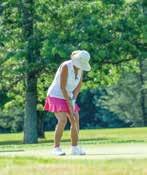
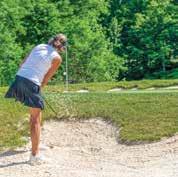



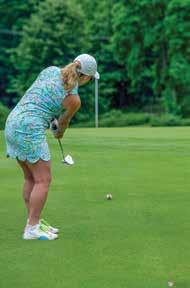
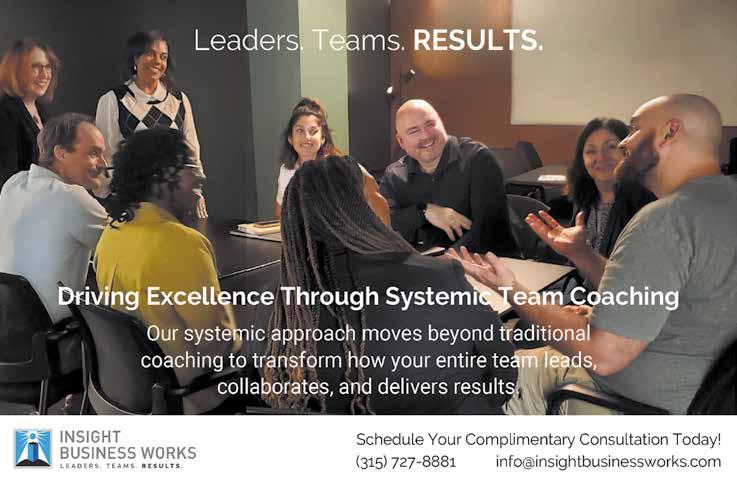

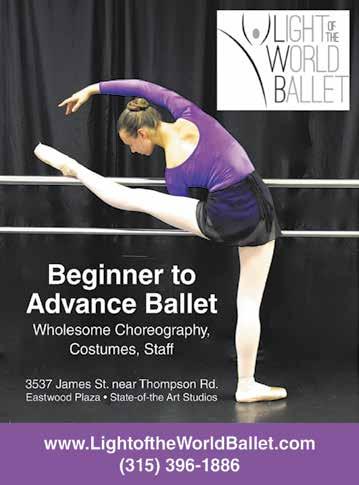
Central New York Porsche Club of America held its annual Family Event Party at the IMSA Salem 6-Hour Race at Watkins Glen International Racetrack. CNYPCA members and guests enjoyed a family style picnic and viewing party at the track. CNYPCA has for several years secured the same campsites at the “Bus Stop” located at the end of the back straight. This year the hosts were Lynn and Ed Hurd and Rebecca and Stephen Lerman: A special thank you to all the volunteers to help set up the site: Barbara Conley, Art Vanore, Bill Kohnke, Erin and Jason Newton. The CNYPCA each year gives to three charities with fundraising events. This year the charities are Food Bank of CNY, Gregory J. Harris Military Courtesy Room and Toys for Tots.
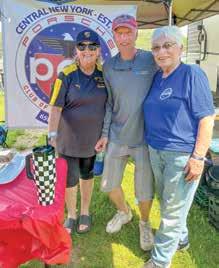




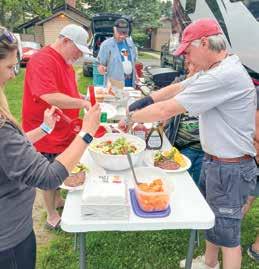
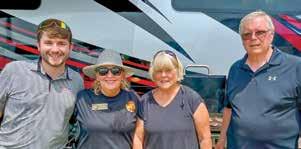

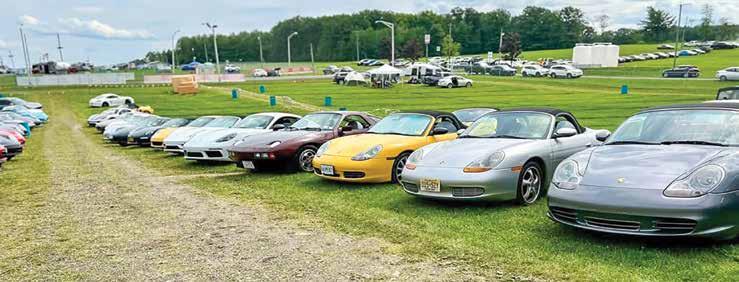


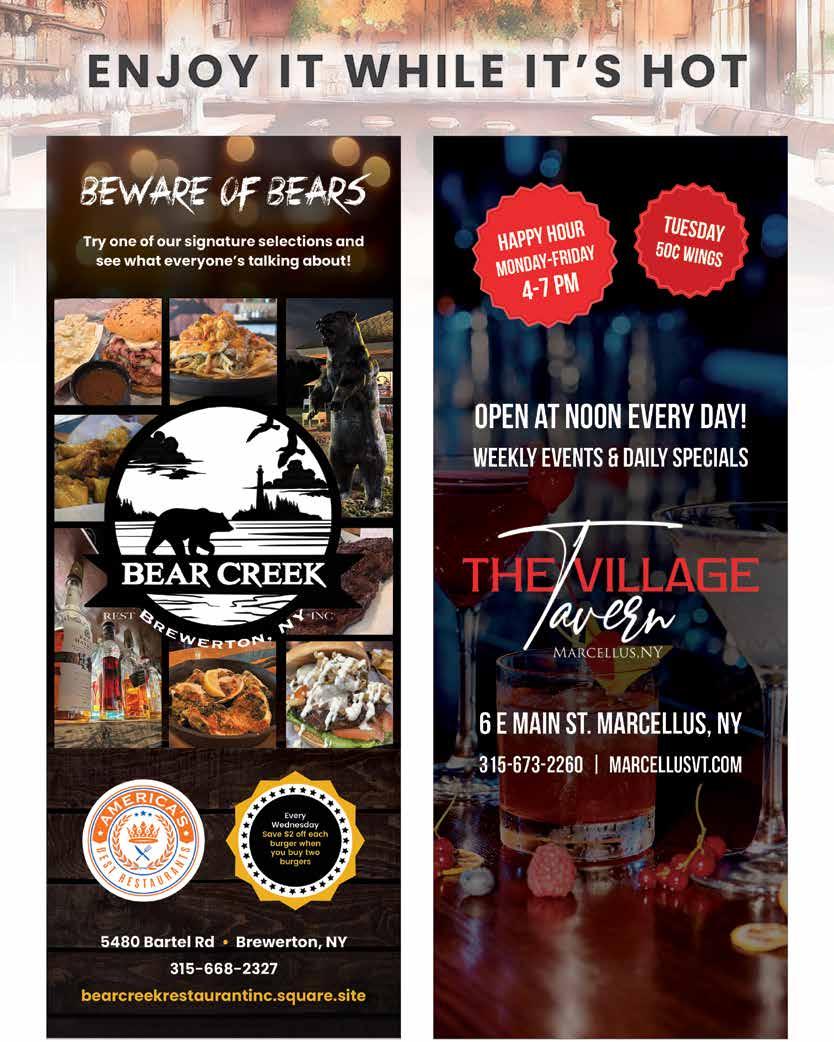

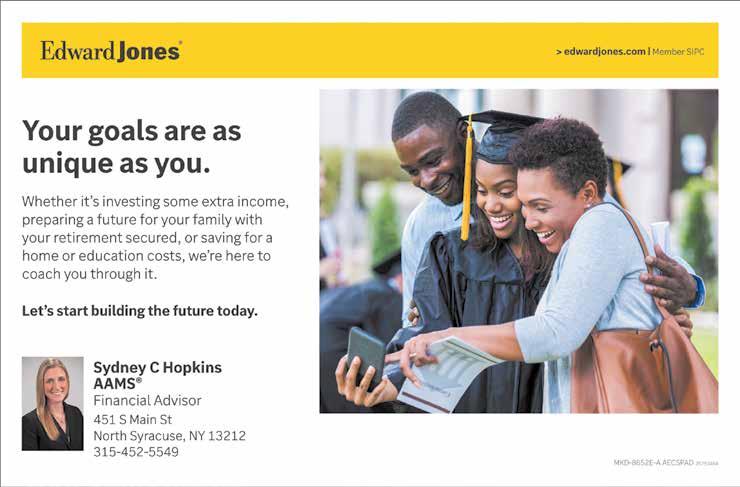
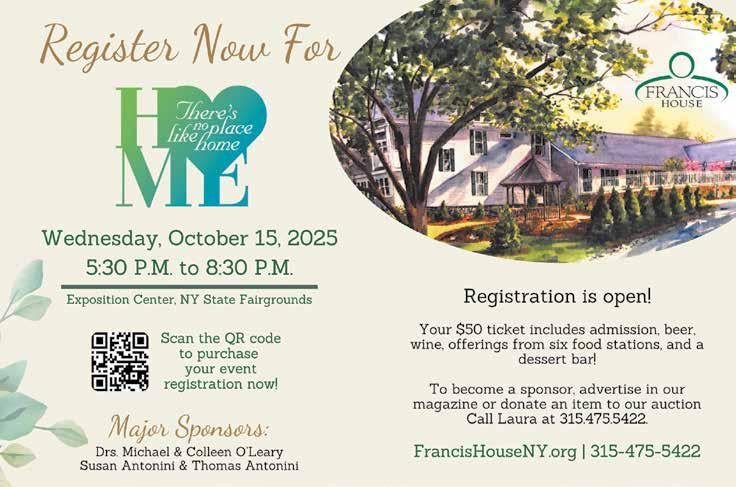



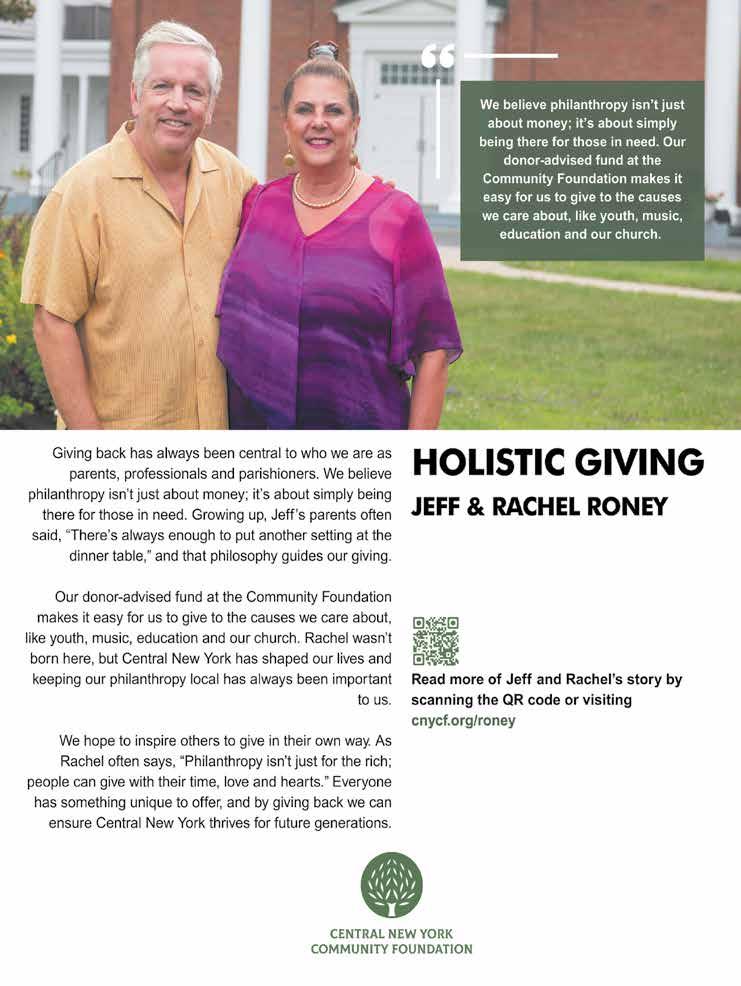
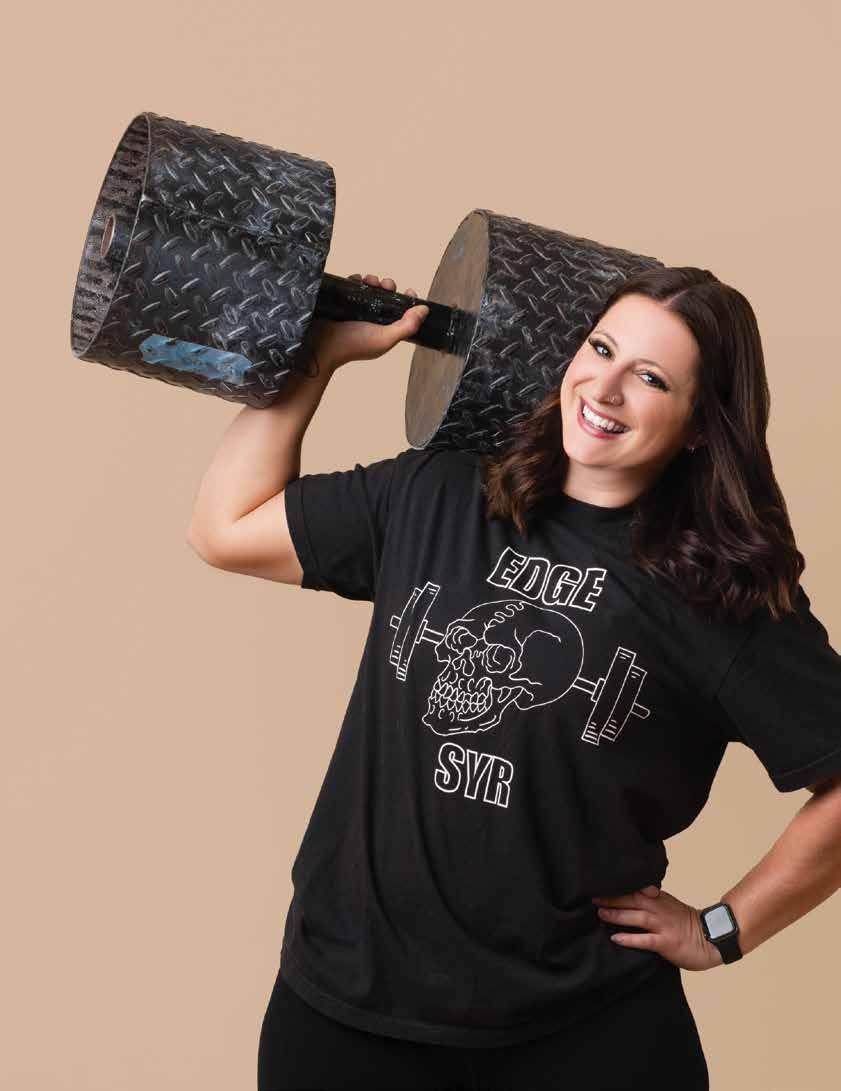
Fitting for someone whose days are spent advocating for her students, supporting her community and lifting Atlas Stones that weigh more than some adults, Diane Zoanetti is driven by a deep commitment to help those around her.
Raised in Fairmount and a graduate of Westill High School, Diane’s journey in education began with the dream of becoming a Spanish teacher.
“I had really great teachers,” she remembered as her driving force in that direction. “Which makes a huge difference, right?”
After high school, Diane began her higher education at SUNY Cortland but, after a year, found herself back in Syracuse to recalibrate. She enrolled at Onondaga Community College, where she also worked in a grant-funded position to help new students. She would run orientations, connect students with faculty advisors, give tours and assist with things like class registration.
When the funding for the position ran out, Diane needed a new plan. Fortunately, she found a position as a teacher’s assistant at Solvay Elementary. Even more fortunately, it led her to fall in love with teaching special education.
Continued on page 24

Her first student had autism. By the end of the year, Diane and her student had worked together closely, to the point at which he was not only participating in class but also joining field trips and activities.
“We were able to help this particular student regulate within an environment that he had previously had a difficult time,” she said. The experience working as a TA was a turning point for Diane.
“I learned so much,” she said, “and I was like, ‘This is what I’m going to do now.’”
She went back to school, attending Le Moyne College, where she earned her master’s degree in education.
Her first full-time teaching job came at Fayetteville-Manlius.
“I applied — it was my very first interview — and somehow I got it,” Diane said. “It was a great school district and I worked with some incredible people.”
She’s just finished her sixth year working in special education in the Fayetteville-Manlius district. While her freshman year as a fulltime teacher came with its share of challenges — including a global pandemic — she credits a strong support system for helping her grow into the role. One of her earliest mentors had a lasting impact.
“She taught me how to handle different behavior. She taught me how to work on communication with parents, work on communication with TAs, work on communication with the kids,” Diane shared. “It’s all stuff they don’t teach you in school. They teach you how to write a lesson plan; they don’t teach you how to form those relationships. And that’s the bread and butter of special education.”
During her first year, Diane and her students established a routine, with everything moving pretty smoothly. Then came March 2020, and, with it, the shutdown. Like educators across the world, Diane had to quickly pivot to online platforms like Google Meet and Google Classroom, building entirely new systems for students who were used to hands-on instruction. She found that some students would participate and others wouldn’t.
“It was what it was,” she said. “I wasn’t going to hold it against them. It was a whole new world for these kids and us. There were really no guidelines.”
Diane and her students finished out the 2019-2020 school year virtually, heading back to the classroom for the 2020-2021 school year adorned with face masks. Toward the end of the year, when they were finally able to remove the masks, it was the best thing to see faces again, she remembered.
“Especially when you're teaching life skills and understanding emotions and facial expressions — it’s a whole key piece,” she said.
This past school year, Diane was in a 12:1:1 classroom, a setting with a team of paraprofessionals and students who are all alternatively assessed, meaning they work toward credentials rather than traditional diplomas. She had eight students and taught a full slate: English, math, science, social studies and life skills. In addition, she pushed into an honors English class, which was fairly heavily focused on literature, with one of her students, a young woman who is visually impaired and uses a wheelchair due to a traumatic brain injury.
“We just made things accessible for her and she showed us that she can comprehend just as much as everyone else in her classroom. She just needs things to be presented in a way that matches her,” Diane said. “It was incredible to see. I had a blast doing that with her.”
In addition to teaching, Diane serves as head advisor for Unified Friends, a club that pairs neurotypical and neurodivergent students, and coaches the school’s Unified Bowling team. After the struggle
presented by the pandemic, she thoroughly enjoys seeing students back together again and is more than happy to attend graduations, proms, senior balls and more.
“I chaperone everything because I'm that teacher,” she said. “I enjoy being able to be fun and to participate in things with students and 'humanize' that teachers can also be fun!”
And it shows in the way the kids brighten up when they see her. At a typical Unified bowling match, Diane likely participates in a thousand high fives and nearly as many hugs. Her casual and fun style resonates with students of all abilities, and the kids want to be around her.
Outside of school hours, she also does home respite for the student who took the honors English class, spending time with her on anything from homework to walks outside to listening to music.
“I’ve just learned so much about how to work with her and how to assess her responses, what different questions work for her, different ways to interact with her,” Diane said. “It makes me a better teacher in the long run, because I’m able to integrate her so much more into things.”
Along with developing herself as an educator, Diane found another outlet for her strength in an unexpected place: Strongman training. She got into the sport a decade ago after her personal trainer needed a Strongman training partner for a day. One session in and Diane was hooked, despite the bruises.
“I flipped over myself with the keg going over my head,” she said, laughing.
Still, she showed up the following week and hasn’t stopped since. Today, Diane has competed in both local and national Strongman competitions and holds the New York state heavyweight record for Atlas Stones.
“It’s crazy to think about,” she said. “I’ve had boyfriends and friends who told me I need to stop lifting because it makes me too manly. It’s the most ridiculous thing in the world. Being strong is one of the best things ever.”
She’s been working out at Edge Strength and Conditioning Gym for the past six or seven years, drawn not just to the equipment but to the environment.
“The vibes are good here,” she said. “The people are great. They genuinely care here, which is fantastic.”
Diane also brings her sense of commitment to her work as an EMT, following in the footsteps of her father, a retired Syracuse City firefighter who had been an EMT. In 2012, when a friend asked Diane to accompany her for the certification course, Diane thought, why not? Especially if she could save or help just one person.
From delivering babies to helping put at ease an elderly person whose first language wasn’t English, no two days as an EMT are the same.
“It’s really cool to give back to the community,” she said.
Diane credits much of her inner strength to the examples set by her family — her parents, of course, but also her grandfather and grandmother. She described the matriarch as a true pillar of strength. “I’ve had great examples of strength and power in my life,” Diane said. “I’ve had really great role models.” SWM
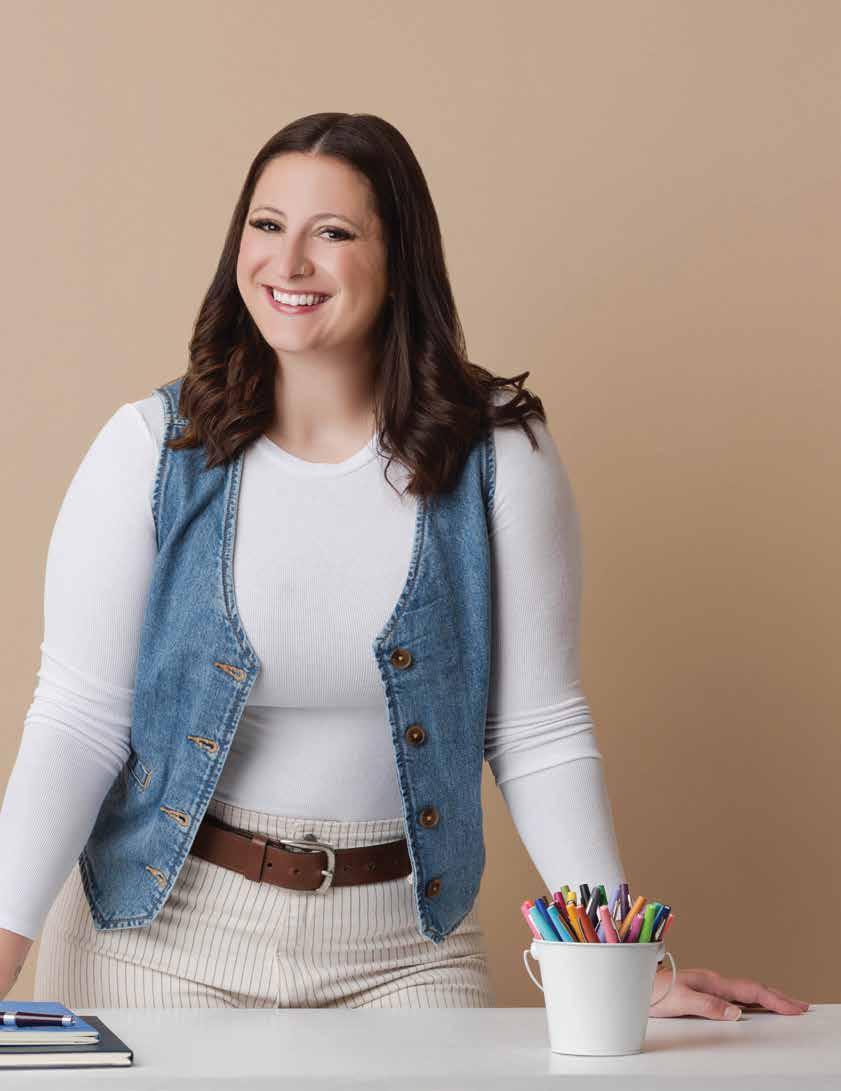
“I enjoy being able to be fun and to participate in things with students and 'humanize' that teachers can also be fun!”
—Diane Zoanetti

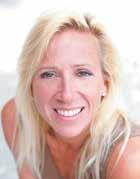
Growing older – it’s something I foolishly never thought would happen to me. But I am getting older, and have been for a while… since birth, actually.
And, as many people are happy to point out, it’s better than the alternative. But a few months ago I discovered something unsettling. I was getting thicker in the middle. It wasn’t necessarily a potbelly, more like a bit of a hill where there was previously a plain, to use geographical terms. It amounted to about an additional five pounds added to what I’ve weighed, give or take a pound or so, for the past 15 years.
I wasn’t eating more or working out less. So, what was the deal?
I decided to turn to the internet for an answer, knowing that many physicians and other experts argue against doing so.
According to AI:
“Weight gain during menopause, even without changes to diet or exercise, is common due to hormonal shifts and aging.”
Great. Add that to the list of annoying things that growing old cause – wrinkles, joint pain, gray hair, hearing loss, declining vision (especially close-up) … I could go on, but I don’t want to scare the “kiddies” (anyone under 40) who might stumble upon my column.
Armed with this knowledge, I decided I needed to do the things that Google was telling me – work out more and be choosier about what to eat. More specifically, to eat more protein and less “empty calories” such as carbs. There are plenty of great exercise routines from which older adults can benefit (see related story, facing page.)
The idea was that I would not only lose the weight but would firm up the area – and other “places” that needed it.
I set out on this mission, determined to change the trajectory of this aging thing.
Foolish, I know. Long story short, my increased workouts – higher weights, more classes at the YMCA, only left me feeling drained and my joints achy. The protein thing did help a bit, but I figured my new “normal” weight would just have to be adjusted to be five pounds heavier.
Then I was derailed by having a minor, in-office procedure resulting in stitches on my back, in between my shoulder blades. I’ll save that story for another time.
But, because there was an incision that had to heal, my doctor told me I couldn’t lift weights for at least two weeks, and probably longer than that, in order to heal well and keep the scarring minimal.
Ugh – didn’t the doctor know that I was trying to get rid of this “paunch,” this five-pound enemy that had taken up camp around my waist?
That was when it came to me – I could ride a bike. Well, a stationary bike, that is, since my history of cycling on local roads is littered with skinned knees and road rash, a result of not having a good sense of balance or caution. No road warrior am I.
But I could join the dedicated indoor cyclists at the Y. I’ve done spin classes there before, so it wasn’t too much of a stretch for me to switch from my group exercise classes to cycling during my sabbatical due to stitches.
For those who haven’t gone to a cycling class before, the first thing that hits you when you enter the room is the chill that surrounds you. The air in the room is kept cold and “crisp” through air conditioning and dehumidifiers running on what appears to be full-blast. Because of this, a light jacket is needed at the beginning but, never fear, that jacket will not be necessary a few minutes into the class.
The lights will be on when you first enter, but are turned off once the class begins, and the room is then only illuminated by light coming through the long window that runs along its front.
When choosing your bike, it’s all about location. There are those who like to be in the front row, closer to the instructor, and further from the fans. There is then the middle row, a compromise of sorts for those who don’t want to be up front but don’t want to be in the darkness of the back row.
The back row is where I usually reside, in the darkest spot and as close to the fan as possible. No one wants to witness what is about to happen.
The bikes themselves are pretty straightforward – you can adjust the height of the handlebars and seat, as well as how close they are too each other. Many of my classmates wear shoes that can clip into the pedals of the bike; I wear my regular sneakers and just strap myself in. Each of the bikes also has a small screen between the handlebars that gives you your RPMs and wattage; I tend to ignore the screen and ride by “feel,” and the instructor will guide you, telling you when to speed up, when to up your gears and when to ride in or out of the “saddle.”
All of this was quite familiar to me, but the first couple of classes were tough, as I felt every muscle previously underused in my other workouts. To say that I sweat during these classes is an understatement. I’ll spare you the details, but let’s just say it ain’t pretty.
As a former runner, I used to say, “I don’t care what kind of shape you are in – you could be a professional athlete, even – the first mile is the hardest. As you continue after that, with everything warmed up, it gets easier.” Granted, no marathon runner was I, but that statement, in my experience, was true.
I’ve found that to be the way in my cycling classes as well. During a typical class there are times, in the heat of things at the beginning, where I feel like I can’t go on, where I fantasize about stopping my legs from circling, getting off of the bike, wiping it down (as every rider should after using) and going on about my day. Times where my knee aches and I worry that I’m doing too much, where my lungs are working on overdrive and I don’t think I can keep up the pace.
But, somehow, I do it, and, as the class goes on and we near the end, I feel uplifted, with my body working as a machine – am imperfect, aging machine, but ticking along just fine. And during the last ride (song) of the class, I somehow find that burst of strength to take me to the finish line. And, trust me, there is nothing like the feeling of having crossed that line, earning the right to cruise into your cooldown.

Now, a few months later, my stitches have been removed, my incision has healed and I’ve added back my group exercise classes, returning happily to the camaraderie they afford as well as the benefit of an overall workout.
But my go-to class on days when I have to choose one or the either has now become cycling. That burst of cardio has strengthened my core and increased my stamina exponentially. My knees even feel better, if you can believe it. I think cycling has strengthened the muscles around them – my calves, thighs and hamstrings, enabling them to be more supportive of those bothersome joints.
Oh, and I not only went back to my “regular” weight during my spinning sabbatical, I lost an additional six pounds on top of that. Will wonders never cease!
Now I need to figure out how to maintain my “new normal” weight… SWM
Chef Eric Rose
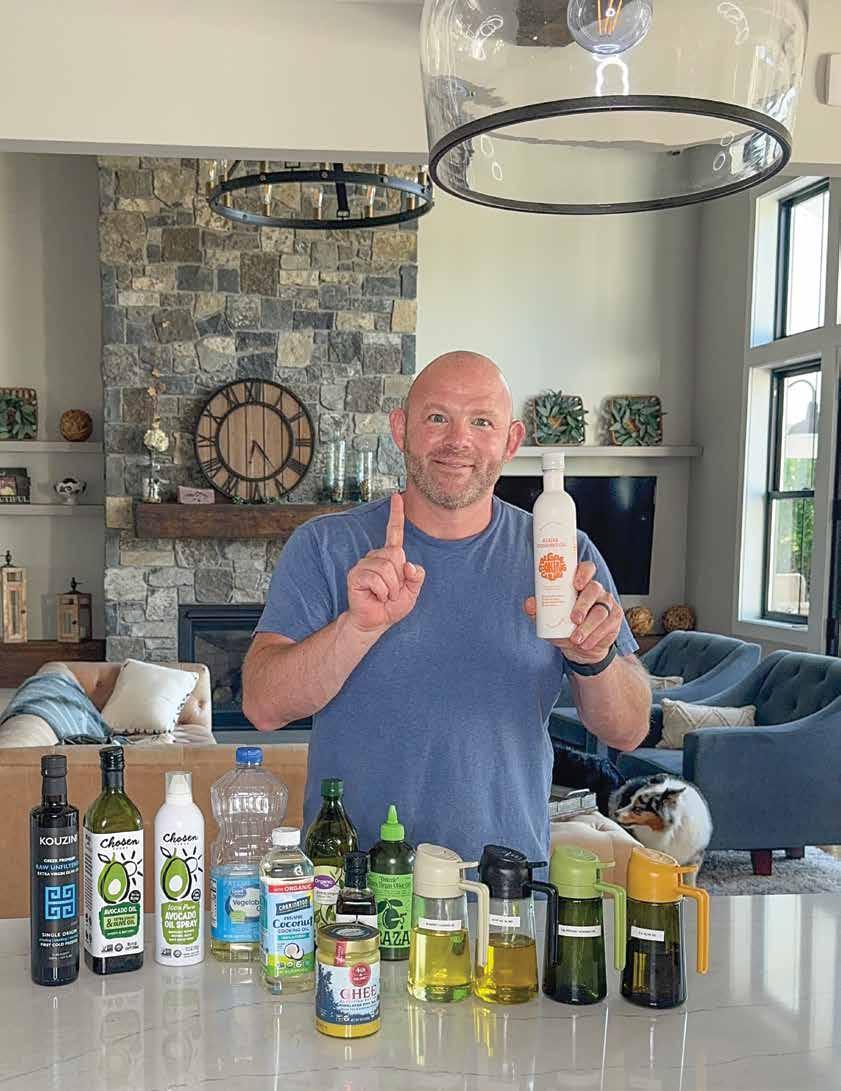

Let’s talk oil, the kind you cook with, the kind that builds flavor, and most importantly, the kind that fuels your body for better or worse.
As a professional chef and wellness coach, I believe food is one of the greatest tools we have for transformation. But there’s a hidden saboteur sitting in most pantries today: low-quality, ultra-processed cooking oils. While they might seem harmless (or even marketed as “hearthealthy”), the reality is they can silently sabotage your metabolism, gut, and even mental clarity.
The good news? Not all oils are created equal. There are powerful, healing, nutrient-rich options that can elevate both your cooking and your health.
Here are my Top 5 Cooking Oils ranked by performance, nutrient profile, and health impact plus the truth you need to know about seed oils.
#1: Algae Oil – The future of healthy cooking is here (this is relatively new to the kitchen)
This oil is new to many kitchens, but I believe it’s the game-changer we’ve been waiting for.
Why I use it every day:
• Incredible fat profile: Algae oil boasts a whopping 93% monounsaturated fats, more than avocado or olive oil, and contains plantbased omega-3s (DHA & EPA) which support brain, heart, and joint health.
• High smoke point: With a stunning 535°F, it handles all highheat cooking, searing, frying, roasting, without breaking down into harmful compounds.
• Clean & sustainable: No seeds, no hexane, no chemical solvents. Just fermented algae grown in stainless steel tanks. It’s the most eco-friendly oil on the market, using far less land and water than traditional oils.
• Gut & brain-friendly: Its natural omega-3s and absence of inflammatory seed components make it ideal for reducing systemic inflammation, supporting the gut-brain axis, and even improving mental clarity.
I recommend the brand Algae Cooking Club. It's buttery, neutral in flavor, and a dream for everything from sautéing veggies to baking salmon.

#2: Avocado Oil – The high-heat workhorse
• Smoke point: 520°F perfect for grilling, roasting, and stir-frying
• Heart-healthy: Loaded with monounsaturated fats and vitamin E
• Mild taste: Great for dishes where you want the oil to stay in the background
#3: Extra Virgin Olive Oil – The classic staple
• Smoke point: 375°F best for salad dressings, drizzling and light sautéing
• Rich in polyphenols: Supports heart health, fights inflammation
• Use it raw or low heat: Keep it cool to protect its antioxidant power
#4: Grass-Fed Ghee – Buttery and Balanced
• Smoke point: 480°F handles high heat like a champ
• Lactose-free: Safe for many with dairy sensitivities
• Flavor booster: Adds richness and a nutty aroma to veggies, rice, and meats
#5: Coconut Oil – The Tropical Hero (In Moderation)
• Smoke point: 400°F great for baking, curries, and medium-heat cooking
• Antimicrobial: Contains lauric acid, which may support immune and gut health
• High in saturated fat: Use sparingly and intentionally
The problem with seed oils: What they’re not telling you
Let’s cut to it: seed oils are making us sick.
We’re talking about: Canola, Soybean, Corn, Cottonseed, Sunflower and Safflower.
These oils are in nearly every processed food, restaurant fryer and bottle labeled “vegetable oil.” But behind the health claims lies a toxic truth:
Here’s why I avoid them completely:
• Highly refined with chemicals like hexane
• Oxidize quickly, creating toxic byproducts that stress your cells
• Sky-high in omega-6 fats that disrupt your body’s omega balance
• Fuel chronic inflammation the root of most diseases
Continued on page 30
Oils ain't oils FROM PAGE 29
Emerging research links excess omega-6s from seed oils to leaky gut syndrome, IBS, Crohn’s, and autoimmune flare-ups. These oils damage the intestinal lining, impair the microbiome, and can even trigger mood swings, depression, and anxiety.
Even more concerning, there's a growing correlation between high seed oil intake and cognitive dysfunction, including ADHD symptoms in children and adults. The brain is made of fat. If we feed it inflammatory fats, we’re setting up neurological chaos.
Want sharper focus, a calmer mood, and a happy belly? Swap the seed oils for any of the five I’ve listed above. You’ll feel it in days.


As a chef, I care about taste. As a coach, I care about transformation. And as someone who has helped thousands reclaim their health, I’ll say this boldly: Your oil matters.
Choosing better fats isn’t about going on a trend it’s about building a foundation. Every meal is a vote for your future self. I recommend cooking with intention, eat with clarity, and fuel the bodies we were meant to thrive in.
1. Read your labels. If it says, “vegetable oil,” dig deeper. It’s likely canola or soy.
2. Store oils properly. Keep them in cool, dark places to prevent oxidation.
3. Rotate oils like you rotate foods. Variety supports nutrient diversity.
4. Avoid seed oils even in dressings and condiments. Swap them out with homemade versions using olive or algae oil.
OIL SMOKE POINT BEST USE
Algae Oil
Avocado Oil
Ghee
Coconut Oil
Extra Virgin Olive Oil
~535°F
~520°F
~480°F
~400°F
~375°F
Searing, roasting, baking, dressings
Grilling, stir-frying, all-purpose
Frying, sautéing, rich savory dishes
Medium-heat baking, curries, keto recipes
Low-heat cooking, drizzling, cold dishes



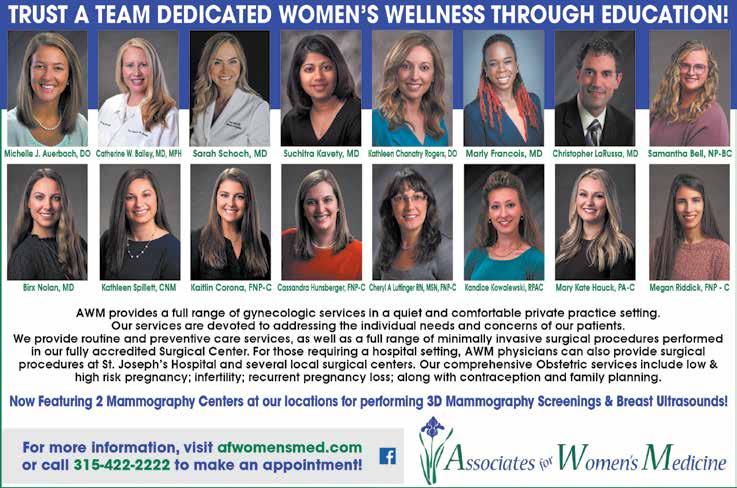
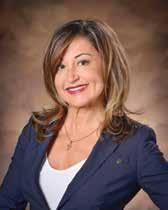
Lauren Kolb Certified Wealth Strategist

Divorce is never easy, especially when it happens later in life. Often referred to as “gray divorce,” this transition can be emotionally and financially overwhelming. But while the path that led to this moment may have been out of your control, your financial future is firmly in your hands.
For many women, this may be the first time in years, or ever, that you are managing your finances independently. The “non-money spouse,” defined by financial firms as one of two partners who may not be interested in or confident enough to be the money manager of the household, has historically been a woman. The good news?
With thoughtful planning and a few strategic steps, you can establish a well-designed infrastructure for a secure and fulfilling next chapter of your life. Allow me to be your tour guide as you build a new financial house, brick-by-brick.
• Open individual accounts. Close joint bank and credit accounts. Establish your own checking and savings and credit card accounts to build or rebuild your personal credit history.

• Build your emergency fund. Aim to save at least 20% of your income in a dedicated emergency fund. This cushion will help you weather unexpected expenses.
• Understand your cash flow. Track your income and expenses to get a clear picture of your financial landscape. Knowing where your money goes is key to making informed decisions.
BONUS TIP: Work with your bankers and financial advisors to be certain that the titling of your accounts have all been changed the
way you need them to be. This will protect you from being impacted by your ex-spouse and their financial decisions moving forward. Think of home mortgages with both parties on the deed.
• Identify critical expenses—housing, medical, utilities, groceries, insurance and transportation. These are your top priorities.
Continued on page 20
• Simple is good. Even with lifestyles. Temporarily reduce discretionary spending. Once you are financially stable, you can gradually reintroduce comforts and extras.
BONUS TIP: Think of this as a total reset, a chance to align your spending with your new goals and values.
Brick 3. Turn assets into opportunities.
• Consider selling non-essential valuables. Engagement ring, necklaces or other high-value gifts can be appraised and sold to help fund investment accounts or pay down debt.
• Move forward with intention. Only take this step when you feel emotionally ready. These items may have sentimental value, so give yourself ample time to decide.
Brick 4. Update legal and financial documents.
• Create a new will or trust. Divorce typically nullifies previous estate plans. Work with an attorney to draft new documents that reflect your current wishes.
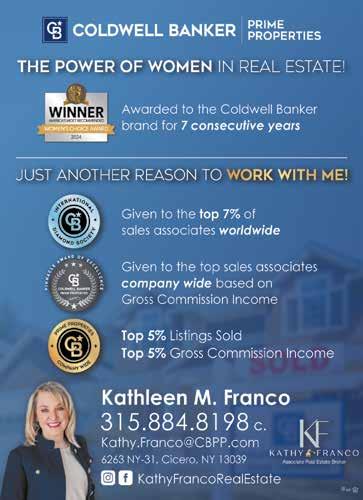
• Review all beneficiaries. Update retirement accounts, life insurance policies and investment accounts to ensure they align with your new life.
Brick 5. Seek professional guidance.
• Find the right advisor. If you had a shared advisor during your marriage, consider finding someone new, ideally a fiduciary who is focused solely on your best interest.
• Set new goals. Whether it is retiring on your own terms, buying a home or traveling with your friends, a dedicated financial advisor can help create a roadmap to get there.
Divorce is a major change in life, but it is also an opportunity to redefine your future. With the right team, tools and mindset, you can take control of your finances and build a life that reflects your strength, confidence and independence.
BONUS TIP: You’ve got this, and you don’t have to do it alone!

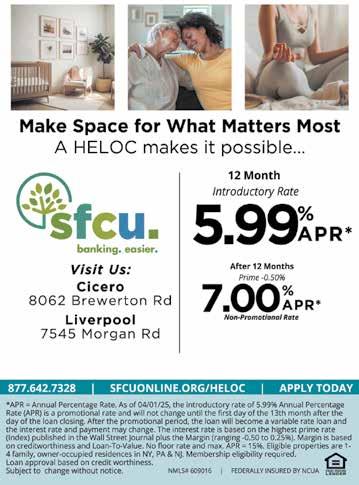
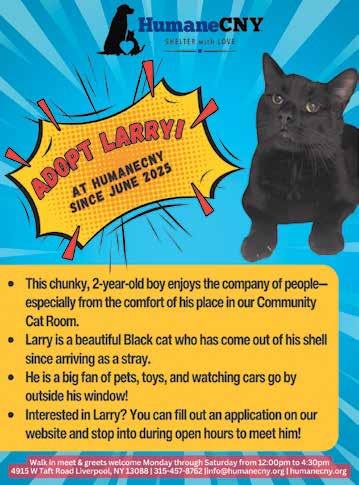


Nicolle Madonna Cerio, a Syracuse-area equestrian and business owner, has been appointed head coach of the Cornell University equestrian program.
The announcement was made on June 24 by Dr. Nicki Moore, the university’s Meakem and Smith Director of Athletics and Physical Education.
"We're excited to have someone of Nicolle's stature take over the Big Red equestrian program to continue and build upon its success," Moore said in a Cornell press release. “Her experience coaching riders of all skill levels, and especially her work with championship competitors, will serve our student-athletes well. We're thrilled to have her as part of the team.”
Senior Associate Director of Athletics Matt Coats also welcomed Nicolle to the Cornell Athletics family.
“We are confident that Nicolle's leadership, deep equestrian knowledge and passion for horse and rider development will be a tremendous asset to our program,” he said.
According to Cornell, Nicolle has over two decades of experience as an equine professional, including extensive coaching success at the regional, zone and national levels. She has served as owner and head trainer of CNY EQ in Bridgeport, since 2010. In that capacity, she has been responsible for managing all aspects of horse training, sales, leasing and instruction, while also maintaining client relationships and business operations. She is also an avid competitor, showing primarily in the professional three foot to three foot six inch jumper and hunter divisions and often bringing along sale horses and young horses.
“Horses have encompassed every aspect of my life for as long as I can remember,” Nicolle said in the press release. “They have afforded me the opportunity to meet so many people, foster amazing relationships and go so many places that I may never have otherwise been able to. I am greatly looking forward to carrying on the team's legacy and [continuing] the positive trajectory with such a wonderful group of students, horses and staff.”
The Cornell equestrian team had 28 riders and 20 horses on its 20242025 roster.
The team competes throughout the academic year in the Intercollegiate Horse Shows Association (IHSA), which eliminates the cost of horse ownership for riders and allows for students of all skill levels to participate.
At each show, riders are grouped by skill level and experience and randomly assigned horses provided by the hosting school. They compete in various classes, both on the flat and over fences, and are judged on their ability to effectively communicate with and control the horse while
keeping proper form. Ribbons are awarded for first through sixth place, and each ribbon has a certain number of points associated with it.
Nicolle noted that while riders compete individually within their respective classes, their placings also earn points for their team. “The camaraderie that builds is priceless,” she said.
In addition to practicing and competing, team members are expected to do weekly chores at the Oxley Equestrian Center, such as feeding horses and cleaning stalls.

“[The] commitment great riders need to have is admirable, and these young adults are committed to academics, the horses, and each other,” the new head coach said.
A current resident of Fayetteville, Nicolle grew up on the north shore of Oneida Lake in Cleveland, N.Y.
She was introduced to horses when she was four or five years old by her mother, a longtime horsewoman focused on dressage.
Her first experiences in structured riding were in the western style on Arabian horses.
Continued on page 38
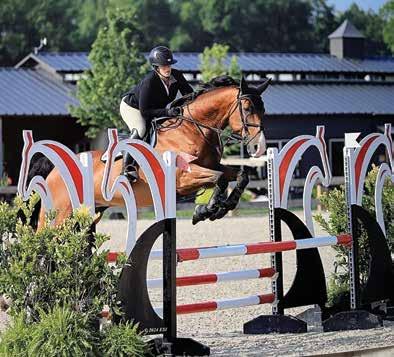
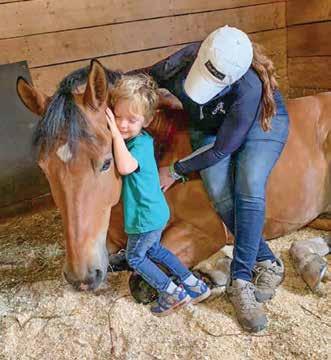
“That’s what was close to my parents’ home at the time — a far cry from my current hunter/jumper life,” she said. “I’ve always loved everything about horses — ‘obsessed’ is how many family members described it. I started to get far more serious about it in third and fourth grade. Then life totally changed in fifth grade when my mom bought us our first family pony, Stormy, who ended up being an amazing show pony and provided me with opportunities I may never have had otherwise.”
Nicolle went on to receive an associate of science degree in equine science and business management from SUNY Morrisville, where she competed in the IHSA for two years.
After a teammate at Morrisville passed away during her sophomore year, she decided to transfer to another school. At the same time, however, she was encouraged by two individuals in the horse world to reach out to John Madden Sales, the stable of Olympic gold medalist Beezie Madden, to ask if there was a working student position available. She made the call and started working at the stable in Cazenovia that spring.
“It was a life-changing experience riding the top horses in the world under the instruction of the top rider and trainer in the world,” Nicolle said. “I didn’t make a dime, and it never mattered. The lessons I learned and the horsemanship I was exposed to shaped the rest of my life. As we approached that fall, John asked me what my plans were and said I could be added as a groom for the winter circuit in Wellington, Florida. I said, ‘Yes,’ and I recall him chuckling and saying, ‘Perhaps ask your parents if dropping out of college is okay.’ My parents are both from immigrant families, they are self-employed, and they understand chasing a passion. So, the answer was yes. Again, the exposure I had to a world I would have never had the chance to glimpse was more life-changing than any college degree I could have pursued. It was the best thing I ever did.”
After two years at John Madden Sales, Nicolle moved on to Hunter Farms in Princeton, N.J., to do more teaching and riding. Working as
an assistant trainer, she gained a wealth of information about another side of the equestrian world.
Once she felt the urge to return home, she moved back to Central New York to try her hand at freelancing and self-employment.
“I have met so many people along the way, had many setbacks and had many victories, every moment remembering to enjoy the journey and that I am lucky to be talented, driven, and healthy enough to pursue this lifestyle,” she said.
In 2008, Nicolle founded the CNY EQ Interscholastic Equestrian Association team, which she coached through 2023, leading middle and high school students to regional, zone, and national titles. In 2010, her team won the Zone 2 finals. She also served six years on the Zone 2 ethics committee, helping determine rulings on sportsmanship and competition issues.
Nicolle also established the LeMoyne College IHSA team. As the team’s leader from 2013 to 2017, she coached introductory through open-level riders and managed all team operations.
Last year, under Nicolle’s guidance, rider Aubrey Borgesi placed first in the Zone 2 18-35 adult hunter finals championship, won the Zone 2 three foot equitation finals, and finished third nationally. In 2023, her clients won championships at the Mid-Winter Circuit in Ocala, FL, and multiple Syracuse Professional Horsemen's Association titles.
As she takes on her new role on the Cornell coaching staff, Nicolle will have the opportunity to help even more riders achieve their goals.
“Equestrian sports foster longevity, unlike many sports,” she said.
“It doesn’t end in high school or college; you can compete in one capacity [or another] your entire life, and a lot of that lifelong commitment is solidified in collegiate life. Cornell opens the gates to working with incredibly talented riders from all walks of life. The entire staff at Cornell is kind, hardworking and honest, and values a good work-life balance. [Overall,] it’s a rather refreshing environment.” SWM
To learn more about the Cornell Equestrian Program, visit cornellbigred.com/sports/ equestrian.
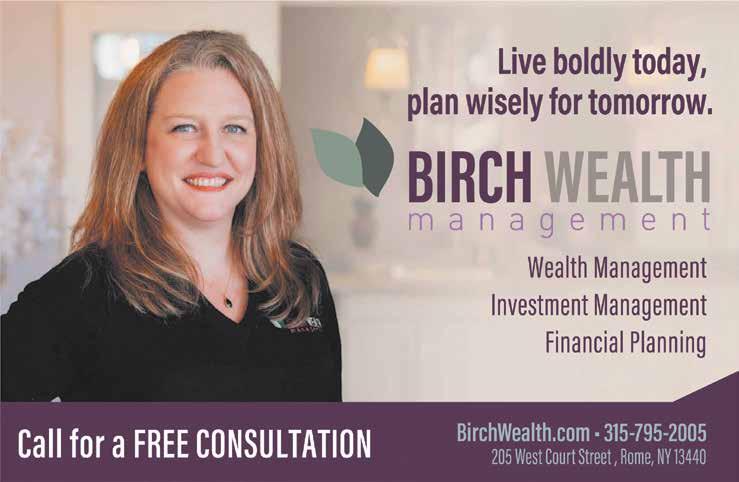
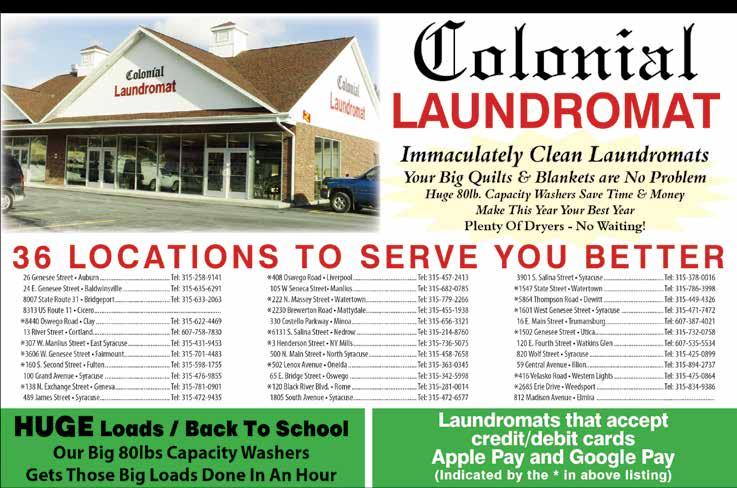
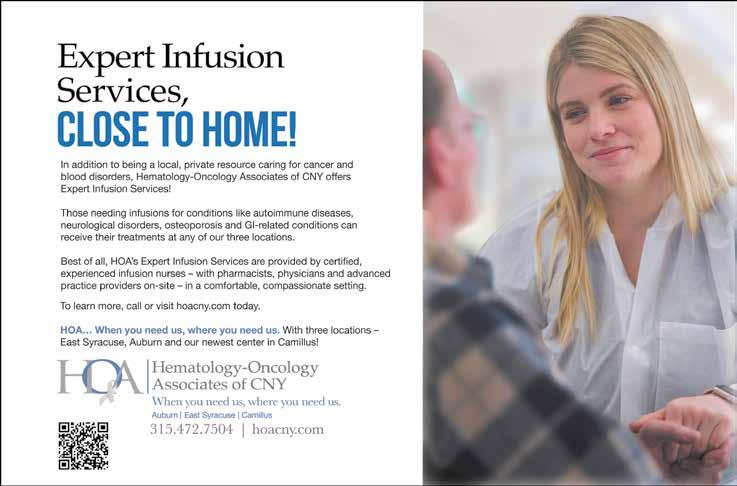

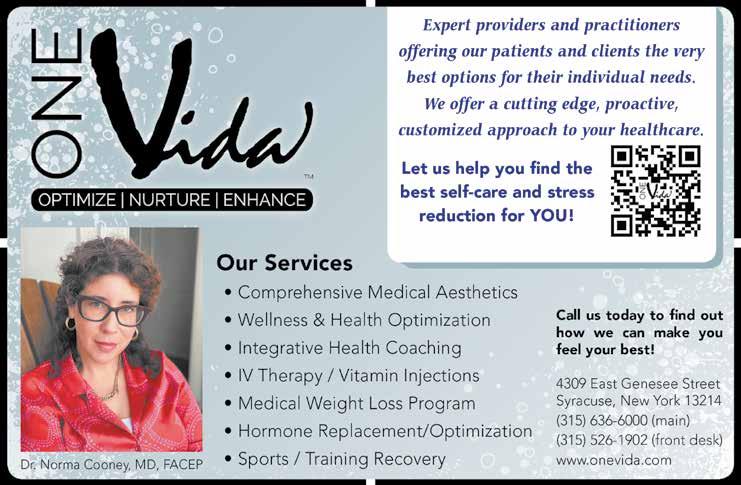


Providing a unique experience for both children and parents

Play 2 Learn was founded with the intention of bringing more immersive, brain-building early childhood education programs to the Central New York community. Since its founding in 2017, the program has served over a thousand area children, giving them the opportunity to learn social skills, fine motor skills and language skills before they start kindergarten. Play 2 Learn’s owner, teacher and mother Kelly Vincentini, however, founded her company initially to fill a gap in early childhood programs based on her own experience.
“I was able to take a leave, so I was home with two toddlers.” Kelly said. “And I was loving being a mom and I was really enjoying the early childhood years a lot. I was kind of searching in the community for opportunities to spend time doing something memorable and social and fun in the morning before nap time.”
She said she did “lots of great things” during that time.
But she kept saying to her husband, who is also an educator, that it would be great to have a “parent-child class that met weekly so that the kids got to know each other and the grownups got to know each other.”
She also wanted it to be more than just a typical story time for the kids. “I said, ‘I want there to be a weekly theme. I want there to be lots of language and new vocabulary words around the theme. I want there to be story and music and movement. And I want there to be sensory play and art. Wouldn’t that be great?’”
Then, with encouragement from her family and her desire to build programs that would benefit her children as well as other children in her community, Play 2 Learn was born.
“I think there was an old concept in society that you went to college for something, you studied it, and think ‘I’m going to be here for the rest of my life,’” Kelly said about her career shift. “I was going to work in a traditional public school and this was going to be my path forever.”
She said she would encourage other women seeking something different to embrace change.
“I think [moms] are trying to navigate a new version of themselves as a mom [as well as] a career woman,” Kelly said. “I remember exactly when I felt that way. I guess I would encourage women that you can pivot. You can have a new dream. You can take your old dream and your old career and turn it into something new that works for you and your family. I think that’s something that I’m really grateful for every day.”
At all three of its community locations, Play 2 Learn offers a unique experience for both children and parents. While babies, toddlers and preschoolers learn from sensory activities, movement, art and intentional play, parents can socialize and connect with one another.
“Each week, there’s a new theme with new concepts to work their early language skills - lots of music and movement, which is crucial at that age,” Kelly said. “I know that sensory play and artful play is very important to develop creativity. So, we just hit the ground running and we started offering a variety of classes out of our Baldwinsville location.”
Kelly said that, from day one, it was always about the children. “But it was also that I really wanted to support the caregivers,” she said.
“I think that parenthood can be isolating. It can feel so challenging and parents need more support. They don’t come with manuals, and it’s very important to me that parents have access to the experts in the areas of parenting and early childhood education. If I can connect them to experts, that’s really important to me.”
Connecting children and their caregivers with professionals happens in each of Play 2 Learn’s programs. Kelly herself is a teacher, but she also employs retired teachers and teachers in training to help run programs. She also connects caregivers with experts across the field of childhood education on Play 2 Learn’s podcast, with a new episode launched every other Friday, connecting mostly with local experts in the field of parenting, motherhood and early childhood development, but also with experts from around the country as well.
“So often when I’m teaching in my classes, parents will say [things like] ‘my mom just died. I’m really struggling with it and I don’t want to grieve in front of [my kid], but maybe I should be. How do I help her?’” Kelly said. “I hear these questions all the time. I am not an expert on grieving with children. I’m not an expert in death. I’m not an expert in nutrition for children. I’m a teacher. Podcasting is a labor of love because it’s labor intensive and time intensive. But it’s giving me a way to learn along with everyone else. When I interview these experts and collaborate with them, it’s providing expert advice for parents and [helping] them show up and parent with confidence.”
Play is also an important part of Kelly’s program. As children explore sensory bins, play at water tables, move to music and engage in pretend, they are working and learning.
“I always remind the parents and the staff that play is the work of childhood, and it’s crucial during their early childhood years,” she said. “It’s so easy to have intentional play, and that’s what we try to provide: a lot of ‘play-spiration.’ Sensory play is a great way to fill their brains and their bodies at the same time. They’re working on hand strength, they’re working on fine motor skills, they’re working on social skills.”
She said that socialization during a child’s early years is crucial, pointing to the experience gained through the COVID-19 pandemic.
“For two years, [children] were just at home with their parents. That was quite debilitating,” she said. “So when you look around the room, the babies are exploring with their bodies. You see toddlers starting to work side-by-side and doing a little parallel play. And then you see the preschoolers come in and they’re starting to actually socialize.”
And these activities are not restricted to weekly Play 2 Learn classes these are lessons and skills that can be brought home.
“I would say that the best thing you could do is carve out time where you connect one-on-one with your child,” Kelly said. “Let them lead the way and guide the play. It can be with their favorite toy, it could be a card game they love - some kids will pick up books or want to sing or dance. But the number one thing is that they feel valued and seen and appreciated, even if they can’t articulate that. Let it be very child-led. And have fun. We shouldn’t stop playing, either, as adults.” SWM
To learn more about Play 2 Learn, visit www.play2learntot.com.

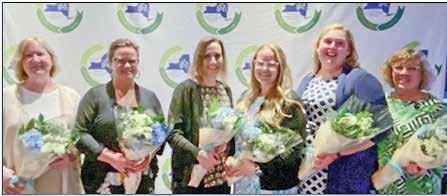
The New York State Association of Family and Consumer Sciences Educators has recognized several local professionals with awards for the 2024–25 school year.
Christine Smith Bunn, formerly of the Liverpool Central School District, received the Orchid Award, which honors an individual who has made an outstanding contribution to the field of family and consumer sciences and the association during retirement. Bunn has served in numerous leadership roles, including NYSAFCSE state president, professional development co-chair, leadership development chair at the state level, and area co-coordinator locally.
Elizabeth Milliken, of the Marcellus Central School District, was awarded the Distinguished Service Award. The honor recognizes a member of NYSAFCSE who has made a significant contribution to the professional organization.
Erica Volpe, of the North Syracuse Central School District, received the Promising New Professional Award. This award recognizes a teacher who has demonstrated effectiveness and dedication to the field within their first five years in the profession.
Alicia Frisbie, also of the North Syracuse Central School District, was named Teacher of the Year. The award honors an educator who has significantly contributed to the field through teaching excellence and long-term commitment, with more than five years in the profession.
Two individuals received the Ellen Swallow Richards Award: Tiffany Ciarico, a career and technical education business educator from North Syracuse CSD, and Emilie Felicia, MPH, a public health educator at the Upstate New York Poison Center. The award, named in honor of the founder of family and consumer sciences, is given to non-FACS professionals who have made a meaningful impact on FACS education at the local or state level.
From left to right are Christine Bunn, Orchid Award; Erica Volpe, Promising New Professional; Alicia Frisbie, Teacher of the Year; Elizabeth Milliken, Distinguished Service Award; Hannah Cottrell, FCCLA Advisor of the Year; Shirley Ware, Merit of Honor Award.
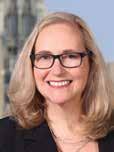
Bowers CPAs & Advisors, a top-ranked regional accounting and advisory firm, has announced the hiring of Turissa Campbell as manager of learning and professional development.
Campbell brings extensive experience in workforce management, human resources, performance management and employee development. In her new role, she will lead initiatives to strengthen internal training,
identify skill gaps, create development plans and support employees pursuing certifications and career growth.
“We are thrilled to welcome Turissa Campbell to Bowers,” said Mike D’Avirro, co-managing partner. Carl Austin, co-managing partner, added, “Her experience and enthusiasm for employee growth will elevate our talent strategy and ensure our people are equipped to thrive in a fast-changing industry.”
St. Camillus
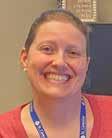
Director of Admissions
St. Camillus has appointed Leigh Hilgenberg, LMSW, C-SWHC, LNHA, as director of admissions.
Hilgenberg brings more than 15 years of experience in health care and skilled nursing to the role. She will oversee admissions and support the organization’s mission of delivering quality care to its residents.
“We are thrilled to have her as part of the St. Camillus team,” the organization said in a statement.
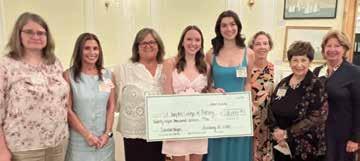
The St. Joseph’s Health Auxiliary Board hosted its annual meeting and luncheon in June at the Century Club in Syracuse. Pamela Kleine received the esteemed Hannah Pease Award and Suzanne Kondra was specially noted for 50 years of consistent volunteer work with St. Joseph’s Health Hospital.
Auxiliary events emphasize the organization’s rich history of service projects that serve the needs and mission of St. Joseph’s Health Hospital and community.
The Auxiliary’s next initiatives include the annual Operation Backpack, a luncheon to honor the hospital’s volunteers, and the Lighting the Way event in November.
To learn more or become a member, visit sjhsyr.org/auxiliary.


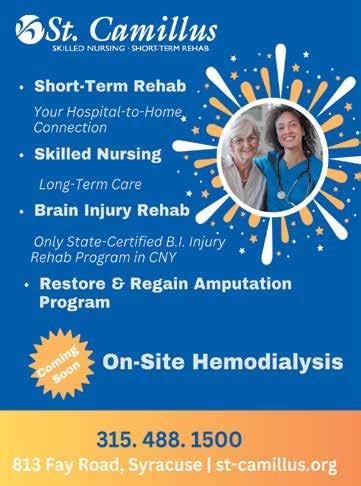
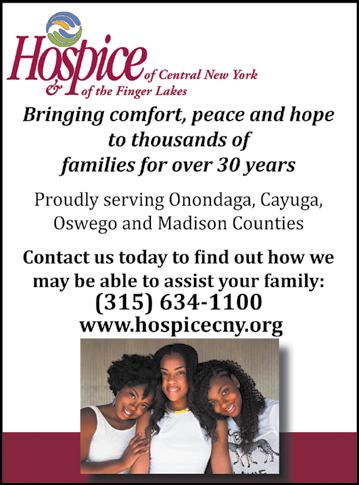
Fridays, Saturdays & Sundays, Aug. 1-3, 8-10
Shakespeare in the Park: “Twelfth Night”
What: Viola, separated from her brother Sebastian, dresses as a boy to work for Duke Orsino. Romantic entanglements and shenanigans ensue in this classic romantic comedy.
Where: Thornden Park, Thornden Park Drive, Syracuse, NY 13201
When: 5:30 p.m. Fridays and Saturdays, 2 p.m. Sundays

Info: For tickets visit onthestage.tickets/syracuse-shakespeare-in-the-park.
Tuesdays through Aug. 19
CNY Jazz Waterside Dining Series
What: Enjoy fine dining accompanied with a great lineup of diverse jazz musicians.
Where: Persimmons, Timber Banks Golf and Marina, 3536 Timber Banks Parkway, Baldwinsville, NY 13027.
When: 6 to 9 p.m.
Info: cnyjazz.org.
Thursdays in August
315 Thursdays
What: Enjoy free live music and an artist village curated by Wildflowers. Celebrate local creativity and community connection.
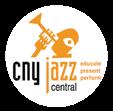

Where: Perseverance Park, 205 S. Salina St., Syracuse, NY 13202
When: 5 to 9 p.m.
Info: 315thursdays.com.
Sunday, Aug. 3
Middle Ages 30th Anniversary Party
What: Celebrate an iconic Syracuse brewery with music, food trucks, local vendors, and, of course, beer!
Where: Middle Ages Beer Hall, 120 Wilkinson St., Syracuse, NY 13204
When: 2 to 8 p.m.
Info: Free. middleagesbrewing.com.
Wednesday, Aug. 6
WBOC Summer Sip and Social
What: Join for great company, networking, food and drink.
Where: Bistro 1926, Drumlins Country Club, 800 Nottingham Road, Syracuse, NY 13224.
When: 4:30 to 7 p.m.
Info: Free; please register at wboconnection.org.
Friday, Aug. 8
Graduate and Registered Nurses Open House
What: Join Crouse to learn about available positions and the benefits of Crouse culture.
Where: Crouse Business Center, 730 S. Crouse Ave., Syracuse, NY 13210
When: 1 to 3 p.m.
Info: Free. crouse.org/careers/rnopenhouse.
Saturday, Aug. 16
Syracuse Latino Fest
What: Enjoy food, music, dancing, cultural demonstrations and more while celebrating the CNY Latio community.
Where: Clinton Square, 161 Genesee St., Syracuse, NY 13202
When: Noon to 10 p.m.
Info: Free. festivallatinoamericanosyracuse.com.
Art Cafe and Open Jam
What: All ages and all creatives are welcome to join for open studio time to create and connect with others. Bring what you are working on or use provided supplies for a $10 donation. Refreshments provided.
Where: Pink Rock Culture Co-op, 201 East Jefferson St., Syracuse, NY 13202
When: 2 to 6 p.m.
Info: pinkrockcc.org.
Burlesque Buffet
What: Come to an unforgettable night that celebrates all that is fierce and fabulous! Expect lots of glitter, giggles and glorious nonsense. Featuring an after show waffle party.
Where: Funk N’ Waffles, 307-13 S. Clinton St., Syracuse, NY 13202
When: 8 p.m.
Info: Tickets start at $20. funknwaffles.com.

Saturday, Aug. 23
Broadway Rave
What: Calling all musical nerds and former theater kids! Dance, sing-along and dress up as your favorite musical theater characters for a Broadway-themed party.
Where: The Song and Dance, 115 E. Jefferson St., Syracuse, NY 13202
When: 8 p.m.





Info: Ages 18 and up. Tickets available at thesonganddance.com.
Sunday, Aug. 24
CNY Women’s Walking Club Hike
What: Join the CNY Women’s Network for a scenic hike and connection with other local women.
Where: Fillmore Glen State Park, 1686 Route 38, Moravia, NY 13118
When: 9 a.m. to 10:45 a.m.


Info: Free. Registration required. cnywomensnetwork.com.
Wednesday, Aug. 27
Women's Day at the NYS Fair
What: "Women's health and wellness forum" features advocacy groups for women.
Where: Chevy Court, NYS Fairgrounds
When: 11 a.m. to 4 p.m.
Info: Free

